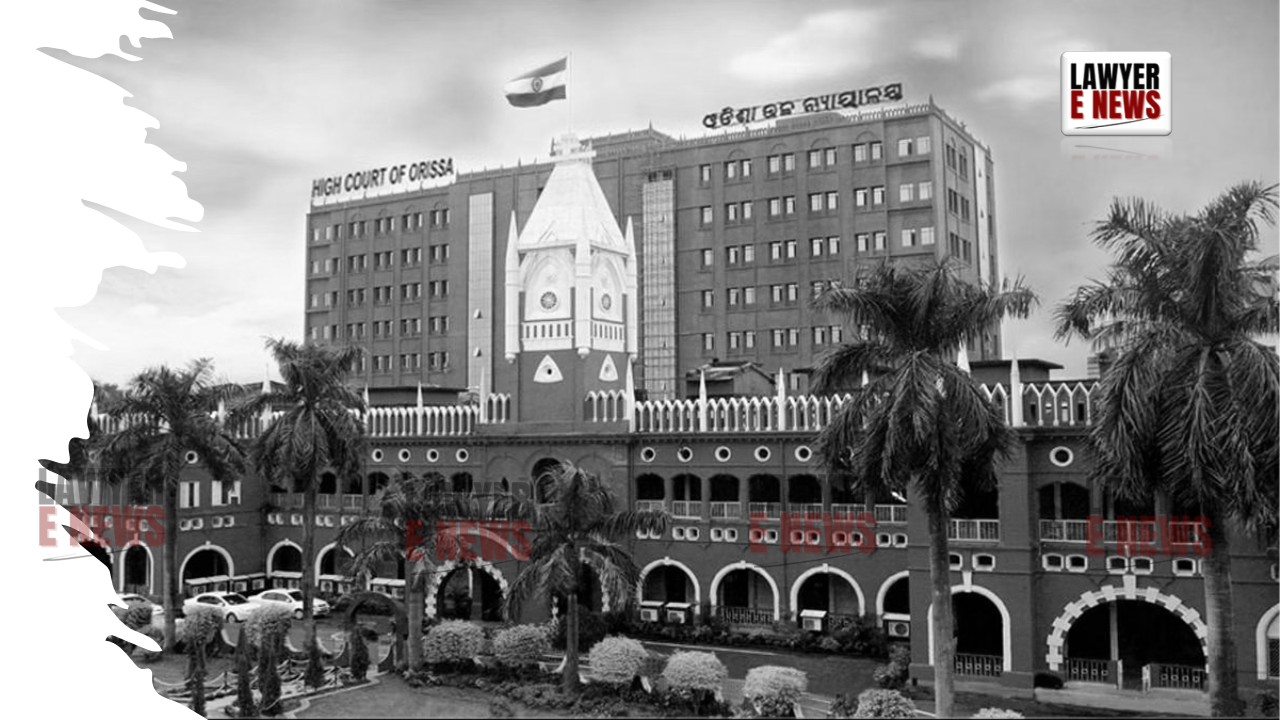-
by Admin
18 February 2026 2:25 PM



Commercial Courts Act Prevails Over CPC: No Revision Against Rejection of Order VII, Rule 11 CPC Application - Orissa High Court, in a significant ruling, held that no civil revision petition lies against interlocutory orders of Commercial Courts under Section 8 of the Commercial Courts Act, 2015. Justice Murahari Sri Raman, delivering the verdict in Sushanta Kumar Kabi v. AABSyS Information Technology & Ors., unequivocally stated: “Where the Commercial Courts Act expressly bars revision, the general revisional powers under Section 115 CPC cannot be invoked to bypass this restriction. The bar under Section 8 is absolute.”
The petitioner, Sushanta Kumar Kabi, had challenged an order of the Senior Civil Judge (Commercial Court), Bhubaneswar, which rejected his application under Order VII, Rule 11 CPC seeking rejection of the plaint on grounds of lack of jurisdiction and absence of cause of action. The High Court, however, ruled that: “Interlocutory orders of Commercial Courts cannot be assailed in revision under Section 115 CPC. Any challenge must be raised only in an appeal against the final decree, as mandated by Section 8 of the Commercial Courts Act.”
"Interlocutory Orders Are Not Subject to Revision – Only Appeals Under Section 13 of Commercial Courts Act Are Permissible"
The petitioner argued that the Commercial Court at Bhubaneswar lacked jurisdiction since the agreement between the parties contained an exclusive jurisdiction clause specifying that disputes must be adjudicated in Cuttack courts. Further, he contended that the plaint did not disclose a cause of action and should have been rejected under Order VII, Rule 11 CPC. The Commercial Court, however, rejected this plea, holding that the existence of a cause of action is a triable issue and cannot be determined under Order VII, Rule 11 CPC.
The petitioner then moved the High Court in revision under Section 115 CPC, arguing that the Commercial Court had exercised jurisdiction illegally. However, the High Court rejected this contention, holding that: “The statutory bar under Section 8 of the Commercial Courts Act is clear and unequivocal. No revision under Section 115 CPC is maintainable against an interlocutory order of a Commercial Court.”
The Court further emphasized that the only remedy available to the petitioner was to challenge the order in an appeal against the final decree under Section 13 of the Commercial Courts Act.
"Exclusive Jurisdiction Clause Does Not Automatically Oust Competent Courts"
The petitioner relied on the exclusive jurisdiction clause in the agreement to argue that the Commercial Court in Bhubaneswar had no jurisdiction. However, the High Court rejected this argument, holding that: “An exclusive jurisdiction clause does not automatically oust the jurisdiction of all other competent courts, particularly where a part of the cause of action arises within that jurisdiction.”
The Court noted that the plaint contained allegations of breach of contract, misuse of trade secrets, and unfair competition, all of which were linked to Bhubaneswar. It observed: “Jurisdiction is determined by the place where a part of the cause of action arises. If the plaint sufficiently discloses such a connection, the suit is maintainable.”
"The Commercial Courts Act Overrides CPC – No Revisional Power Under Section 115 CPC"
The High Court also examined the interplay between Section 115 CPC and the Commercial Courts Act, ruling that: “The Commercial Courts Act is a special statute that overrides the general provisions of the CPC. Revisional jurisdiction under Section 115 CPC cannot be invoked where the legislature has expressly barred such revision.”
The Court cited the Supreme Court’s ruling in Frost (International) Ltd. v. Milan Developers & Builders (P) Ltd., (2022) 8 SCC 633, where it was held that: “Where a special law provides a specific remedy, the general remedy under the CPC cannot be invoked to circumvent it.”
"Revisional Jurisdiction Under Section 115 CPC is Narrow, Even Under Orissa Amendment"
The Court also considered the Orissa Amendment to Section 115 CPC, which permits revision only where:
• The order, if varied or reversed, would finally dispose of the suit; or
• The order, if allowed to stand, would cause irreparable injury or failure of justice.
Applying this test, the High Court ruled: “The rejection of an application under Order VII, Rule 11 CPC does not meet these criteria, as it does not finally dispose of the suit but merely allows it to proceed.”
"Challenge to Interlocutory Orders Must Wait Until Final Judgment"
The Court clarified that aggrieved parties in commercial disputes must wait until the final judgment before challenging interlocutory orders in an appeal against the decree under Section 13 of the Commercial Courts Act.
It categorically ruled that: “The objective of the Commercial Courts Act is to ensure expeditious adjudication of commercial disputes. Allowing revisions against interlocutory orders would frustrate this purpose.”
Dismissing the revision petition, the High Court concluded: “Since Section 8 of the Commercial Courts Act explicitly bars revisions against interlocutory orders, and the present challenge pertains to an interlocutory order, the revision petition is not maintainable.”
The Court further clarified that: “The petitioner is not without remedy but must challenge the order, if necessary, in an appeal against the final decree.”
Accordingly, the Civil Revision Petition was dismissed, with no order as to costs.
This ruling reinforces the Commercial Courts Act’s supremacy over the CPC in commercial disputes, particularly concerning interlocutory orders. The High Court’s decision establishes that:
No revision lies under Section 115 CPC against interlocutory orders of Commercial Courts.
Challenges to interlocutory orders must be raised in an appeal against the final decree under Section 13 of the Commercial Courts Act.
Exclusive jurisdiction clauses do not automatically preclude other competent courts from exercising jurisdiction.
By upholding the efficiency-driven framework of the Commercial Courts Act, the Orissa High Court has ensured that commercial litigation proceeds without unnecessary procedural delays.
Date of Judgment: February 13, 2025
